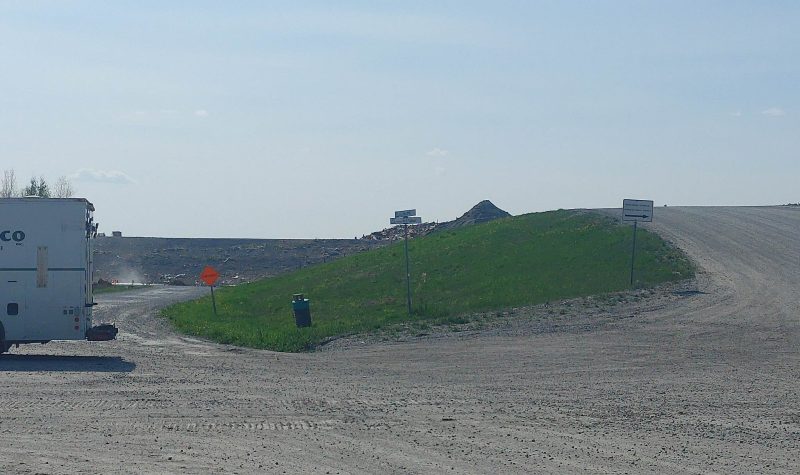The Town of Brome Lake launched its first financial aid program that encourages citizens to purchase sustainable hygiene products to divert the amount of waste going into the Brome-Missisquoi landfill, following in the steps of other Eastern Township’s municipalities such as Cowansville and Dunham.
Kevin Brunelle, communication and promotion coordinator for leisure, tourism, culture and community life for the Town of Brome Lake, said that the municipality decided to implement its first financial aid program for the purchase of sustainable hygiene products after seeing how popular similar programs were in other municipalities. The program is open to all Brome Lake residents.
"The main goal with the program is to reduce the purchase of single use items by giving a financial boost to people that want to take concrete action to reduce their ecological footprint," said Brunelle.
While the environmental aspect remains at the centre of the program's focus, Brunelle noted that the Town of Brome Lake's program also encourages buying local.
"I can say the ecological aspect of it was really important, but we're also offering a larger refund for products purchased in Brome Lake businesses. We are also trying to promote local purchasing so I think it's a win-win for residents and the merchants," he added.
Residents who purchase these products can receive 50% financial aid, up to a maximum of $50 per individual or $100 per family. Residents can receive up to 75% of financial aid if the products are purchased from a Brome Lake business.
Eligible products under the program include cloth diapers, menstrual cups, bidets, dryer balls, reusable razors, ecological toothbrushes, and reusable snack bags. A full list can be found on the Town of Brome Lake's website.
"I really encourage people to participate and to use the offered assistance because this our first attempt with this specific program. It's not impossible that we reevaluate an increase for the allocated budget for the project if it's a success," mentioned Brunelle. "(...) The program is on a first come, first serve basis."
Oriana Familiar, Environmental Management Service Coordinator for the Regional County Municipality (RCM) and Local Development Centre (LDC) of Brome-Missisquoi, said that as the life expectancy of the Brome-Missisquoi landfill has an estimated 30 years left until it is no longer useable, these types of programs are not only a step in the right direction but necessary.
Certain hygiene products, such as diapers and feminine hygiene products, can take up to 500 years to disintegrate, according to Familiar, making them a problematic source of waste for the landfill. She emphasized that citizens and community groups need to pull together to help their municipalities implement green initiatives in their communities.
Recycling, composting and an ecocentre is also on the site. Even though that helps divert waste there is still a need to reduce waste going in to the landfill. “Locally, every single ton of garbage that we produce in Brome-Missisquoi goes to a landfill that we have here in Cowansville," Familiar explained. "It is not a landfill that will last forever. Right now, if we continue at the same rate and the same amount of consumption, its life will probably be no more than 30 years. It’s also a matter of space and to free space that shouldn’t be dedicated for these items if we can have the reusable option.”
Familiar said that the rate of disintegration for hygiene products depends on the material used, but it can take up to hundreds of years for just one product. “With feminine hygiene products specifically, we are talking about lots of plastic. There are different types of plastics involved, different types of film also. This mix of plastics is what makes them non-recyclable and non-compostable and so the only option is to send them to the landfills right now,” she explained. “This is why they’re so problematic.”
As of late, Familiar mentioned that she has seen versions of compostable diapers or biodegradable feminine pads, but they are a cause for concern at the Brome-Missisquoi landfill because it does not have the technology to make them disappear completely.
“It’s not the same for other regions that have biomethanization where they use heat and industrial systems. Here, everything is natural. The problem is we give our compost to the citizens and if we want to give them good quality compost at the end of the day, that they they can use safely in their gardens, we don’t want any plastic involved,” she noted. “(…) Maybe to the eye they will disappear, but when we analyze them under a microscope we will find tiny particles of plastic that we will end up consuming if we use them in our compost and gardens.”
While municipalities are taking a step in the right direction by implementing financial aid programs to help citizens make the green shift, Familiar emphasized that citizens and community organizations play a big part in making sure that they are successful.
“They have so many projects and so many files to take care of, they’re actually running a city, so as citizens we can suggest what we’ve seen in other cities. We can do research for them, for example, to put together the different programs we’ve been seeing throughout the province, throughout the country, throughout the world, and also in terms of green city committees,” she highlighted. “For example, can we sensitive the population?, can we help the city put workshops in place? It’s not just a matter of ‘okay, we’re going to buy reusable diapers, but how am I actually supposed to use them? … It’s important that we walk hand-in-hand with the citizens so that we help them also.”
To hear more about Town of Dunham’s financial aide program for sustainable hygiene products, listen to the full interview below:


